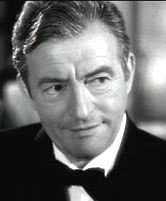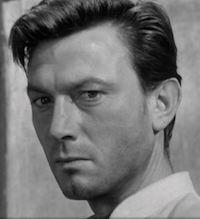THE MAN



On meeting Horst for the first time, you would have been struck by his gentile formality and charm, reminiscent of Claude Rains. Indeed, you'll see Horst dressed in a suit in many of the historical photographs. As you got to know him, you would realize this formality was something of a cover. Horst was more direct and masculine than Rains. Funnier, too. Then, sometimes Horst could be brooding or even cynical, perhaps more like Laurence Harvey, whom he was often mistaken for when he was young. Of course, comparisons to film stars can only get you so far, but I hope this gives you a hint of Horst's persona.
You also immediately noticed his voice and his command of English. His phrasing and accent were seamlessly American, with no trace of a accent. If anything it was Horst's' precise grammar and pronuciation that gave him away. Not surprisingly, his German friends have said his German was also too precise.
Horst's facility with languages wasn’t limited to precision; he mimicked American slang, dialects and accents. He could toss out 50’s Beatnik phrases, or 60’s Hippy slang or even 30’s Jazz lingo, and even had a passable southern accent. His gift was to make them seem natural, never forced or awkward. Usually, these added color to a humorous story.
As you can see from his art that his sense of humor was irrepressable, just part of who he was. So along with his charm came his humor; always playful, sometimes ribald, and occaisionally sarcastic. The combination was naturally charismatic, a talent he was oddly unware of. His friend Hans Becker recalled meeting Horst on a Göttingen Zoology trip. In the bunk-house at night someone had the whole group in stiches with his jokes. Hans decided he had to find out, "Who is this guy?". That was Horst and that marked the beginning of a life-long friendship. Similarly, at his memorial on Bainbridge Island, almost every man in attendance said they considered him their best friend.
Horst enjoyed small gatherings with friends, and was a charming and gracious host, with a reputation for over-serving. He loved making Indian food, and would work for days preparing a banquet for 8 to 10 people. The evening began with Mai Tais and invitations were coveted.
Horst had a serious side as well. As a natural scholar, you would often find him reading a book on Botany, some obscure religion or spirtual discpline, one of the art books from his library or perhaps a language book on Hebrew. Academics wasn't his first calling, but it was an essential part of who he was and it informed everything he did.
Thus, Horst was quite confident in his abilities and intelligence. When he needed a studio in Fairfax, he simply built one even though he had never built anything, let alone such difficult window frames or doors. His gardens were as much an intellectual exercise as work of art: he knew the Latin and English names of each of the 300 species of succulents and cactii, and exactly how to care for each one.
On the other hand, when it came to selling his art, Horst's confidence seemed to evaporate. Gallery openings were uncomfortable, awkward affairs. Promoting himself to gallery owners, excruciating. This is not unusual for artists, but after Feingarten closed in 1963, Horst was reluctant to approach the high-end galleres that would have represented his work properly.
Occasionally, Horst could become very unforgiving with someone. He had a deep aversion to dishonesty, and would just write a person off for lying. He had no tolerance for bullshit of any kind, especially political propaganda, but also sales hype or narcissistic self-promotion. Any attempt to be arrogant, domineering or intimidating was met with cold contempt even it was not intentionally aggressive. Horst's successful friendships with men were always noncompetitive and friendly. This hypersensitivity was certainly due to his war-time experiences.
Horst had a strange magnetism to animals whom he loved. It was not unusual for otherwise shy dogs or cats to cross the room to greet him. In fairfax he regularly fed a family of Racoons who became a complete nuisance constantly demanding food. He ould let the babies into the house, and was bitten several times.
The day Horst died the Bainbridge house was visited by an extraordinary series of animals. A Racoon jumped up on the window sill, a snake went by the sliding glass door, an owl landed on the garden bench during the day, and a large buck visted the yard then slept by Horst's' fish pond that night.